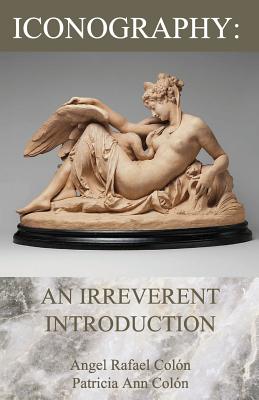Iconography: An Irreverent Introduction

Iconography: An Irreverent Introduction
A fascinating aspect of art history is the way artists imbued their canvasses with symbols. To the modern art goer, the symbols often appear unrelated to the theme depicted, but, with the study of the iconography, it becomes evident they are essential elements for a full appreciation of the art work. At the time this art was created, the symbols - the iconography - would have been universally recognized and comprehensible, but in time, their meanings became obscure, arcane. The goal of Iconography: An Irreverent Introduction is to make sense of what are now unclear, even indecipherable symbols in celebrated paintings and sculptures, and enable contemporary art lovers to completely understand all facets of these masterworks. To ensure that objective, the authors have in depth explanations of symbols that are found in a number of great art works throughout Europe, and have provided informative tables and footnotes as well as illustrations of the paintings and sculptures discussed. The book begins with religious art that produced a vast number of paintings from the 10th through the 17th centuries. It continues with an examination of Renaissance art that experienced a shift in artists' interest and resulted in monumental mythological paintings. Myths, classical allegory and mythological sagas are examined as a guide to understanding who was who on Mount Olympus and in tales told by great authors whose works continue to be venerated. Dutch paintings of The Golden Age, rich in iconography are scrutinized: crowd pleasing domestic social scenes, still lifes, portraits and landscapes. They reflected the mores and preoccupations of 17th century Netherlands and illustrate how emblems and symbols changed with the subject matter. The authors consider illustrious works that defy traditional categorization and range from the mystical, social-political, war-political to the psychological. The iconography of Death explores a topic that was painted for millennia and only lost favor with the advent of impressionistic and abstract art that began in the 19th century. Iconography: An Irreverent Introduction is a vademecum for any museum visit.
PRP: 260.31 Lei
Acesta este Prețul Recomandat de Producător. Prețul de vânzare al produsului este afișat mai jos.
234.28Lei
234.28Lei
260.31 LeiIndisponibil
Descrierea produsului
A fascinating aspect of art history is the way artists imbued their canvasses with symbols. To the modern art goer, the symbols often appear unrelated to the theme depicted, but, with the study of the iconography, it becomes evident they are essential elements for a full appreciation of the art work. At the time this art was created, the symbols - the iconography - would have been universally recognized and comprehensible, but in time, their meanings became obscure, arcane. The goal of Iconography: An Irreverent Introduction is to make sense of what are now unclear, even indecipherable symbols in celebrated paintings and sculptures, and enable contemporary art lovers to completely understand all facets of these masterworks. To ensure that objective, the authors have in depth explanations of symbols that are found in a number of great art works throughout Europe, and have provided informative tables and footnotes as well as illustrations of the paintings and sculptures discussed. The book begins with religious art that produced a vast number of paintings from the 10th through the 17th centuries. It continues with an examination of Renaissance art that experienced a shift in artists' interest and resulted in monumental mythological paintings. Myths, classical allegory and mythological sagas are examined as a guide to understanding who was who on Mount Olympus and in tales told by great authors whose works continue to be venerated. Dutch paintings of The Golden Age, rich in iconography are scrutinized: crowd pleasing domestic social scenes, still lifes, portraits and landscapes. They reflected the mores and preoccupations of 17th century Netherlands and illustrate how emblems and symbols changed with the subject matter. The authors consider illustrious works that defy traditional categorization and range from the mystical, social-political, war-political to the psychological. The iconography of Death explores a topic that was painted for millennia and only lost favor with the advent of impressionistic and abstract art that began in the 19th century. Iconography: An Irreverent Introduction is a vademecum for any museum visit.
Detaliile produsului










